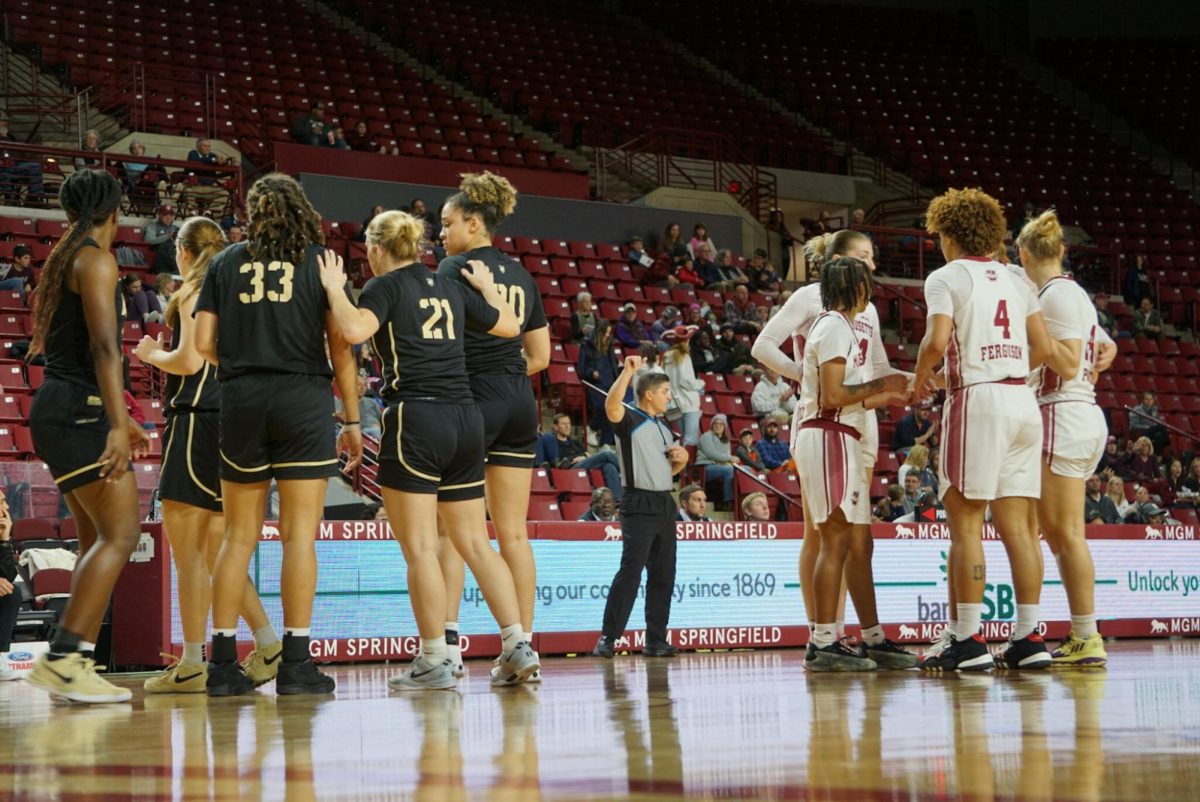
The Student Legal Services Office (SLSO) at the University of Massachusetts is celebrating 40 years as an organization on campus.
All fee-paying students are eligible for legal services, which include housing law, consumer law, civil rights, criminal and traffic citations, family and probate law, employment law, personal injury, university matters, immigration and notary public. Chuck DiMare, director of SLSO, noted about 40 percent of the legal aspects of the SLSO’s activities involve criminal and University matters, and almost all services are completely free.
Throughout organizations 40 years, DiMare said there have been three different office names: the Legal Services Office, the Legal Services Center and finally, the SLSO.
“I’ve run three offices with three slightly different missions,” he said.
For many years, the SLSO was unique in that it was one of the few legal services offices that could represent students against the University.
It could also represent students in cases against the Commonwealth, cities and towns, DiMare said. That authority was taken away before the establishment of the Legal Services Center in 1987, which could not represent students in any case. When the SLSO was established in 1993, the Board of Trustees voted to authorize limited litigation, with the exception of cases against the University or the Commonwealth, according to the SLSO website.
The SLSO’s uniqueness today is exemplified by the fact that Chinese universities have modeled their newly emerging SLSOs after UMass’ Student Legal Services Office, DiMare said.
“Who would have guessed this would be exported to China?” he said.
According to DiMare, the SLSO is “truly a partner” with the University, contributing in many different ways to the success of the student body.
“Student success in the classroom is half (the) story, what happens to students outside the classroom…that’s the other 50 percent. We’re part of that leadership,” he said.
The SLSO has expanded its legal offerings in recent years. According to DiMare, the SLSO added more services, specifically in the area of immigration law, which it first offered about five years ago, and family law, which it first offered about 10 years ago.
DiMare’s role as director has also changed.
“One-third of my job right now is administrative, one-third of my job is being an attorney and one-third of my job is education,” he said.
In 1993, DiMare’s job was about 80 percent legal.
The office was short-staffed at the time, but DiMare also said changes in higher education have influenced his job duties.
“Taxpayers are paying an awful lot of money for us,” DiMare said. He went on and explained taxpayers want to make sure that the organizations they fund are held accountable, leading to the greater need for administrative duties.
In the 1970s and 80s, DiMare said educational programs numbered about 25 a year. He estimates the SLSO has “at least tripled” its educational programs, including the popular
“Interacting with the Police: Know Your Rights and Responsibilities.”
“I think the quality of the office has continually improved,” DiMare said. His hope is that in five to 10 years, the office will still exist, and be even better than it is now.
“I’m not worried too much,” he said.
SLSO will celebrate its 40th anniversary with a gala event and panel discussion on National Security and Due Process on Oct. 17.
Panelists expected to attend include attorney Burton Weinstein, Charles Stimson, a senior legal fellow at the Heritage Foundation, Michael McAuliff, senior congressional reporter for the Huffington Post and DiMare.
DiMare is retiring in June after 36 years as a director of the office. He will also be honored at the gala and donations will be accepted for a scholarship in his name.
Patricia LeBoeuf can be reached at [email protected]


















